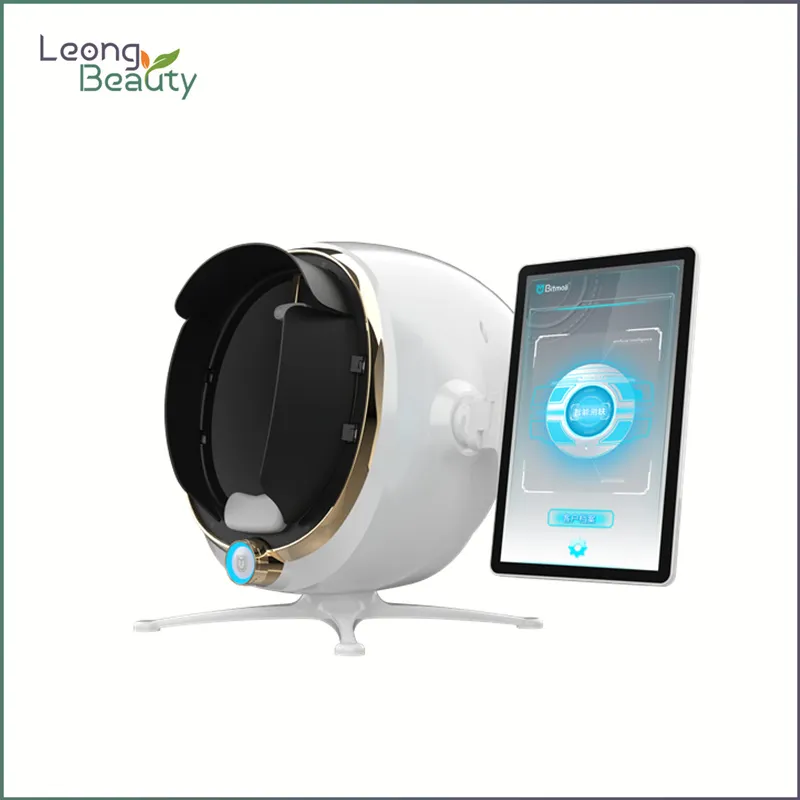What does a skin analyzer do?
2024-11-21
A skin analyzer is a device designed to assess and evaluate the condition of the skin, providing insights into its health, appearance, and potential concerns. These tools are widely used in dermatology clinics, spas, beauty salons, and even in at-home skincare routines. They utilize advanced imaging technologies to give a detailed view of the skin's characteristics beyond what is visible to the naked eye.
Key Functions of a Skin Analyzer
1. Analyzing Skin Layers
- Many skin analyzers use technologies like UV light, visible light, or polarized light to penetrate deeper layers of the skin. This helps reveal underlying issues such as sun damage, pigmentation, and vascular conditions.
2. Measuring Skin Hydration
- They can assess the skin's moisture levels, helping determine if it is dry, oily, or balanced.
3. Detecting Wrinkles and Fine Lines
- Some analyzers measure the depth and density of wrinkles, helping gauge aging signs and skin elasticity.
4. Spotting Pigmentation and UV Damage
- The device can identify spots, freckles, and pigmentation caused by sun exposure or aging, even those not yet visible on the surface.
5. Evaluating Pores and Texture
- Skin analyzers can highlight enlarged pores, blackheads, and uneven texture, offering a roadmap for improving skin smoothness.
6. Assessing Sebum Production
- By analyzing oil levels, these devices can differentiate between oily, combination, or dry skin types.
7. Tracking Progress
- Regular use of a skin analyzer allows users to track improvements or changes in their skin over time, especially when trying new treatments or skincare products.

Technologies Used in Skin Analyzers
1. 3D Imaging: Creates a detailed, three-dimensional map of the skin for precise analysis.
2. AI Integration: Some modern devices use artificial intelligence to recommend personalized skincare solutions.
3. Spectrophotometry: Measures the skin's reflection of light to identify tone and pigment irregularities.
4. Infrared and UV Light: Highlights damage and conditions invisible under regular light.
Who Benefits From Using a Skin Analyzer?
- Individuals: To understand their skin better and choose suitable skincare products.
- Dermatologists: For diagnosing skin conditions and recommending treatments.
- Estheticians: To design personalized skincare regimens for clients.
- Cosmetic Companies: For product testing and demonstrating results to consumers.
Conclusion
A skin analyzer offers a comprehensive view of your skin's health and provides actionable insights. Whether you're a skincare enthusiast, a professional, or someone starting a skincare journey, a skin analyzer can guide you toward better skin health and targeted treatments.


